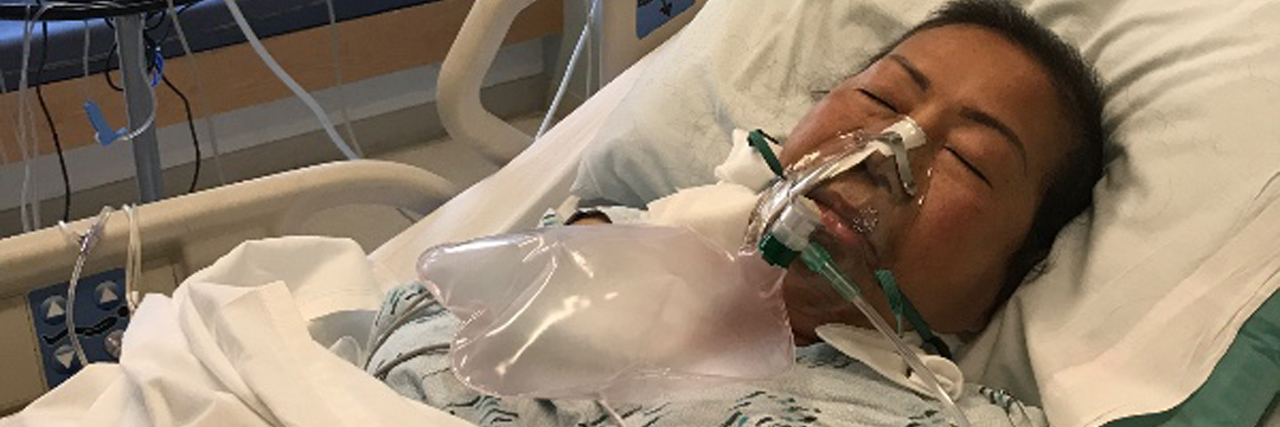Update: In a statement released by Rep. Alan Lowenthal, he shared Helen Huynh’s sister has been granted humanitarian parole by the U.S. government to enter the United States for 180 days to take part in a stem cell transplant to treat her sister’s leukemia.
When you’re told a loved one has cancer, you do everything you can to help them. That’s what family members are doing for Helen Huynh, who was recently diagnosed with an aggressive form of leukemia. However, Hyunh and her family are finding many obstacles in their way.
The 61-year-old Southern California resident and grandmother of three was diagnosed with leukemia in February. She’s currently in the intensive care unit at UC Irvine Medical Center.

According to Dr. Mikkael Sekeres, Director of the Leukemia Program at Cleveland Clinic’s Taussig Cancer Institute, someone in their 60s who undergoes intensive chemotherapy only has a 55 to 60 percent chance of going into remission. Doctors at UC Irvine Medical Center told Huynh’s family a stem-cell transplant would give her at least an additional two to five years to live.
They were told finding a donor with a 70 percent match would be a miracle. But in June, Huynh’s family found a 100 percent match in her younger sister, Thuy Nguyen, who lives in Vietnam.
Huynh and her husband Vien were invited by the U.S. government to live here in 1991. Vien fought as a member of the U.S. Army during the Vietnam War, and after years of hardship delivering newspapers and collecting recyclables, both gained U.S. citizenship in 1996.
“We were very happy. My mom was ecstatic,” daughter Sharon Adams told ABC7. “The doctors were very happy because it’s very hard to find a match, and especially a 100 percent match.”
For months, the family sent letters from three different hospitals stating Huynh needed an emergency medical visa to get her sister from Vietnam to the U.S. Nguyen even went to the U.S. Embassy in Ho Chi Minh City to tell them about her sister’s situation.
Each time, the family’s request for help was denied.
The reason for the denials: the U.S. is not convinced Thuy will be compelled to leave after her temporary stay despite leaving behind money, property and her 5-year-old child.
The situation is frustrating for Adams. “My mom is like my best friend. It’s not very easy to see my best friend go through so much pain like this,” she said. “Just to see her be on morphine and just lay there in and out of consciousness is very hard on our family.”

The family has had to take time off work, putting a financial strain on top of their emotional one. They have also contacted Rep. Alan Lowenthal, who represents the city Huynh lives in, for help. He recently shared a tweet about what he’s doing to bring Nguyen to her sister.
I am working with @StateDept and @DHSgov to bring Thuy to Helen as quickly as possible.https://t.co/j46IvTEs2b
— Rep. Alan Lowenthal (@RepLowenthal) September 21, 2017
This is not the first time immigration has made it difficult for family members to be together during a medical crisis. Last month, the U.S. Embassy and Consulate in Vietnam reversed its decision after it originally denied a woman from Vietnam a temporary visa to see her daughter who was dying of lung cancer.
All photos courtesy of GoFundMe

